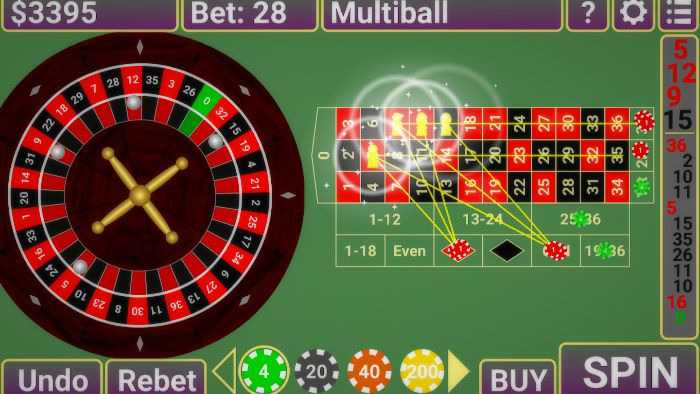- The bet calculator allows you to input your stake & odds in American formats to quickly calculate the payout for your bets.1,000-100 or +100 +1000.
- A 1 in 500 chance of winning, or probability of winning, is entered into this calculator as '1 to 500 Odds are for winning'. You may also see odds reported simply as chance of winning as 500:1. This most likely means '500 to 1 Odds are against winning' which is exactly the same as '1 to 500 Odds are for winning.'

When it comes to decimal odds, your stake is always factored into the return that you calculate but this is not the case when following the fraction method. In terms of the latter, if you put £1 on odds of 4/1 you will receive £4 in profit but also get your £1 stake back too – so £5 in total.
Whether you are new to the world of betting or somewhat of an old hand when it comes to having a flutter every now and again, you will undoubtedly be aware of the sheer range of options at bookmakers like Betfair and Paddy Power when it comes to having a bet.

While putting money on a horse winning a race may sound like a relatively straightforward matter, there is a wide range of bets available. For example, are you planning to keep it simple with a single bet on one race? Or, alternatively, are you looking to take a chance on a larger gamble with an accumulator?

Thankfully, that is where online odds calculators come into their own. These handy tools can make a huge difference to your betting activity, providing you with a full overview of the options available and ultimately helping you to place the bet – or combination of bets – that works best for you.
In this article, we are going to take a closer look at the concept of odds calculators, how they tend to work, and the key benefits that they can offer in terms of boosting your betting balance.
What is an odds calculator?
Odds Calculator And Payout American Odds
On the most basic level, odds calculators are designed to help you understand the implications of your bets and ultimately determine what returns you will receive if you are successful.
Such tools tend to operate in a standard format, with them first asking you to input the type of bet that you have made or are planning to make. This could be anything from a single to a Yankee to Super Heinz or an accumulator. Once you’ve provided this information, you will then be asked to enter the odds on your bet and also the stake that you’ve placed on it. The calculator may also ask you to either enter the odds in the decimal or fraction format, but we will touch upon the key issues related to that further on in this article.
You will then repeat that process however many times is necessary – for example, if you have placed multiple bets – and then may also be able to add information related to Dead Heats or any situation when Rule 4 may have come into play. The latter offers compensation in the event that a horse withdraws from a race after a bet is placed.
Clear benefits
After providing full information regarding your range of bets, the odds calculator will then take care of the hard work by doing the maths and generating an overview of the bets you have made or are planning to make, as well as the potential returns which will be available if you are successful.
Choose your each-way terms with the odds calculator – these vary based on the number of runners and the type of race
As you may have already realised, such tools offer clear benefits to horse racing fans whether they are planning for future races or even checking what their final winnings will be after placing several bets. The ability to input information on a combination of bets is a particular benefit, as it ensures you do not get a headache while attempting to consider the potential outcomes of the bets you have made.
Fractions vs decimals
For a great number of horse racing fans, the use of fractions is the traditional way of viewing the odds for the runners and riders, but the use of decimals is something which has grown significantly across recent years, too. The concept operates on the straightforward notion that you simply multiply a stake by the decimal shown and the outcome will be your total winnings. For example, if you place a £1 bet on a horse with odds of 4.00, you will get a return of £4.
While the use of decimals may seem very simple in that respect, it is worth bearing in mind that the concept offers up one fundamental difference in comparison to the use of fractional odds. When it comes to decimal odds, your stake is always factored into the return that you calculate but this is not the case when following the fraction method. In terms of the latter, if you put £1 on odds of 4/1 you will receive £4 in profit but also get your £1 stake back too – so £5 in total. As such, the fraction allows you to work out your winnings, but you will also need to factor in that your stake will also be returned to you as well.
A better understanding

1000 1 Odds Calculator
It goes without saying that a huge number of people across the globe love betting on horse racing with bookmakers like Betfair and Paddy Power, whether they are attending race meetings in person, following the action on TV, or online via streaming services. You can get free Timeform tips for every British and Irish horse race and free Infogol tips on Europe's biggest football leagues. However, it is also true that some can find it a complicated world to navigate around and they often want a bit of a helping hand to get started.
Odds Probability Calculator
Whatever your level of experience, taking some time to gain a better understanding of how the different formats for odds work can be an important step towards making informed decisions on your betting. Furthermore, the use of odds calculators can help you fully understand how specific combinations of bets could put you on the path towards winning big and also ensure you are fully aware of the winnings that you are due.